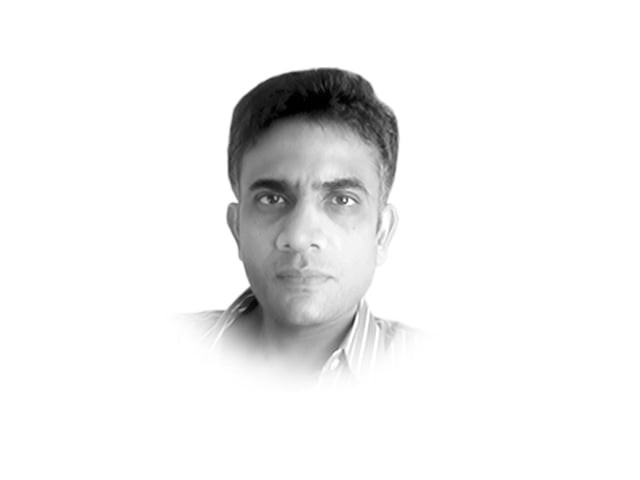Urdu and the bilingual Pakistani
There is a very attractive bilingual quality to the urban Pakistani because of his knowledge of Urdu.

Urdu and the bilingual Pakistani
There is a very attractive bilingual quality to the urban Pakistani because of his knowledge of Urdu. This comes out in Pakistan’s news television. The urban Indian reads and writes mostly in English, and so speaks a broken version of his mother tongue. In Pakistan, one is likely to find many more people who know Urdu almost as well as they know English.
Watching the television of Pakistan from India, this is immediately clear.
I enjoy watching anchors like Sana Bucha, guests like Salman Akram Raja, and leaders such as Shah Mahmood Qureshi speak. Often, this does not have to do with what they are saying (though it is difficult to disagree with someone like Raja), but how it is said. Sometimes I even enjoy watching the fetching — though otherwise repellant — Meher Bukhari because she has great fluidity of expression.
These people are opposed to those from the English press, who are not so fluid in Urdu on television, like Ejaz Haider and Nasim Zehra. They speak more as Indians do, and must compensate by bringing in English words. Pakistan’s great scholar of languages, Dr Tariq Rahman, says he has no problem with this mixing, either aesthetically or otherwise. I see his point. But I must admit that I like listening to those who can speak cleanly in one language. I had the same feeling when I heard Bangalore’s theatre director Prasanna speak a few months ago at an event where I also spoke. Prasanna spoke in Kannada and though I caught the gist of what he was saying, I could not understand all of it. I did, however, observe that he used not a single word of English in a fluent speech of about 20 minutes, and I found that both remarkable and pleasing.
Why is the Urdu of Pakistanis so attractive? Let me speculate. First, it is relevant.
There is no similar high culture for the urban Gujarati, for instance, to access. Much of his classical poetry was written in the Middle Ages. Some of it, for instance, the writing of Narsinh Mehta, was made popular by Gandhi. But on the whole, there is not much poetry to go to and little that can be recited as a response to the modern world.
It isn’t that there is nothing similar at all in any of our cultures, of course. Tamilians have their Kural, and all languages have their sayings in poetic form. But the sort of corpus that Urdu has accumulated from Ahmedabad’s Wali Mohd Wali to Lahore’s Faiz Ahmed Faiz is, I think, unmatched.
Second, it has more range. Urdu has a multicultural, multi-religious vocabulary, bringing in something of many nations. This gives it a width of experience that can precisely nail a sentiment in a couple of words.
Then there is the matter of how it is spoken. To some — I must include myself in this — the sound of spoken Urdu is pleasing. I mean things like the correctly enunciated qaaf, khay, ghain and ain.
Jinnah thought that Urdu should be the national language of Pakistan, and that Bengali should be recognised but demoted. Whatever his reasons may have been for feeling this, and whatever other fallout of this might have been, we must admit that some of the credit for what we are discussing is his. He himself, so far as I know, spoke formally in Urdu only once, after Partition, in a short speech over Radio Pakistan. I have read it, but not heard it and I do not know what the quality of his diction was.
In India, Hindustani in the Devanagari script became the national language. But far too many of India’s states were distant from Hindi and so it wasn’t really enforceable and so our regional languages have thrived. This has meant that the common medium of communication for urban Indians has remained English alone. In Pakistan, Urdu has permeated and flourished since Partition.
There is one last thing that makes Urdu appealing. It is our language and can better express our emotions than English. Wielding it correctly, as so many Pakistanis do, makes the listener proud of our shared culture.
Perhaps, unfortunately for Pakistan, the only nation that can really appreciate this lovely quality of theirs is not China or America, but India.
Published in The Express Tribune, March 4th, 2012.














COMMENTS
Comments are moderated and generally will be posted if they are on-topic and not abusive.
For more information, please see our Comments FAQ